The new Fine Wine magazine is a truly digital publication - there are no printed pages - unless you print them yourself using our handy pdf/print capability. It is being made available for you to read on almost all the major digital platforms we could come up with: web, iPad, mobile including Android, Kindle, Kobo, pdf etc. You can even look for articles on the web and upload them to your Kindle. If you have any technical problems then please contact us so we can resolve them as quickly as possible.
Let me start with a quick note about our financial model. You've paid for this, you have a right to know. Part of all our subscription and advertising revenues will go into a fund for the contributors. They will be paid from this on the basis of the popularity of their articles. It is not for me to say which will be the most popular and, so far, no author has commented that since their's might likely be the least, they wouldn't benefit from such a system. Who's to say what may capture the readers' imagination the most? You will, however, through your reading and browsing contribute to the underlying statistics and if you find our stories interesting then please tell your friends. By so doing you will not only enhance their enjoyment, but add to the economic well-being of the person who has contributed to it.
You may be surprised to find in a magazine ostensibly on the subject of wine, articles on history, philosophy, faith, travel, food, and architecture. But if a magazine about computers would have such a diverse range of topics I would certainly buy it - because although I'm fascinated in computing I've never had much interest in reading about software or even hardware reviews and yet it affects everything we do. Wine too touches almost everyone in some way or another. This disparate group of consumers have multifarious interests - a magazine on wine needs to reflect this. After all, wine is as much about society - sharing, communicating, thinking, stimulating and provoking - providing much of the ambience in which all of these things take place. Fine Wine magazine hopes to reflect this diversity.
This issue is largely about Bordeaux. In the spring each year the Bordeaux en primeur campaign takes place. It is the largest commercial event in the wine calendar. It deserves its own comprehensive review. Everyone is on the look-out for some sound buying tips. My article entitled Wine pricing: a Quality Price Index (QPI) rounds up some great wines and applies a simple calculation: dividing the price by a score. The higher the QPI the better value the wine. We also have a profile on the region of Listrac and the noted Bordeaux expert Jean-Marc Quarin gives his views on the Bordeaux's so-called 'second wines'. Generally these are the wines produced by the chateaux after they've made their selections for their main wine. It's a thought-provoking review. David Green writes up his work in a scientific field which has only really just begun to impact vineyard management and, one hopes, might improve the quality of wines still further. 'Precision Viticulture' is a name which you will hear more about in the future. Dr. Rod Phillips has a talent for exploring the history of wine and his account of the early development of the region and its growth into the foremost wine region in the world makes compelling reading.
Michael Zimmermann and his colleague Jarrett Leplin have considered the value in a bottle of wine. As professors of philosophy they're used to sophistry but this is no specious attempt to perplex and stimulate you. Their analysis promotes some profound speculation on this subject. The less intellectual approach to the subject was once clearly summarised by Warren Buffett: 'price is what you pay, value is what you get'.
Harbingers of ecological tragedy have less of a profile today than they did a few decades ago. Somehow, we're either inured from the warnings or maybe its just an apathy based on a lack of any apparent immediacy in the prognosis. I asked Catherine Taverny, an ecologist based in Bordeaux, to write The River Runs Through It, about the region's main symbol - the mighty Gironde river. Her beautifully told tale of an excursion on the river with a friend and winemaker gives us all some hope for the future.
I first read Thierry Mantoux's hilarious manual of behaviour for the Parisian middle classes many years ago. Thierry is also an expert on wine, providing his experience to the Court of Appeal in Paris. Since we all love a good laugh and wine tends to be treated rather seriously I persuaded him to sharpen his pencil and provide us all with a story of his own choosing.
There are many other articles, tasting notes, and reviews in this magazine - plenty for any number of sedentary sessions. So to provide some stimulus to getting out into the open Tom Kevill Davies, the 'Hungry Cyclist' as he calls himself, explains just how easy it is to get on one's bike and start exploring the region. I asked him to tell us how we can make ourselves look presentable at a château after cycling 15 miles on a hot day, the last part up a gradient, wearing lycra, shoes that go clippity-cloppity when you're out of the saddle and a large water bottle hinged to your back. Yeah, I hear you say - drive! Well, I've got news for you...
I've been thinking a lot recently about biodynamic viticulture. Not just viticulture, but also the rest of it - that dim, incomprehensible, abstruse and even esoteric question of the universe and our place in it. Well, it's a start! I asked someone recently if to practice biodynamics you also had to believe in the philosophy behind it. Claire Foster-Gilbert has graciously tackled the subject in her article Where's the belief? (a distortion of the original slogan for the fast food chain Wendy's). This examination of a thought process behind what is essentially a practical undertaking is, I think, an important part in creating an environment where we all meet to learn, understand, enjoy and participate in this 'world of wine'. For if wine is not simply a product reserved for the shelves of the supermarket under the aisle banner 'Beverages', then one needs to dig a little deeper into the consciousness of both the wine producer and ourselves as consumer. I for one don't wish to be one of a large number of people who know nothing of the basis upon which a whole industry may be founded. In a recent survey in the City of London, 86% of the financiers who worked there didn't know the motto of the London Stock Exchange - dictum meum pactum - 'my word is my bond'.
In part due to the constraints concerning ebooks you won't find many pictures in Fine Wine. My humble objective is, in any case, to provide articles which are written by experts, written well, and intended to engage your attention. We want Fine Wine to be 'read' - not necessarily flicked, tipped, tapped, stroked, touched, browsed, patted or tweeted (all of which you can do too), but 'read'.
I hope you enjoy the magazine. Please leave your comments and let us know what you think.
Fabian Cobb, Editor

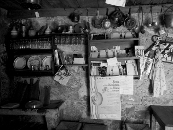
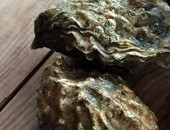
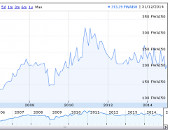
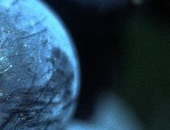
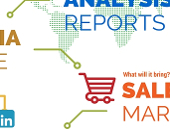
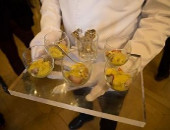




Your site visitors, especially me appreciate the time and effort you have spent to put this information together. Here is my website QN5 for something more enlightening posts about Thai-Massage.
…you have pulled together an astonishingly good e- magazine. FINE WINE embraces an eclectic attitude, at once erudite and playful. Its band of excellent writers delve into intriguing subjects that you won’t find elsewhere. It’s like having your own private insider guide to this special world.